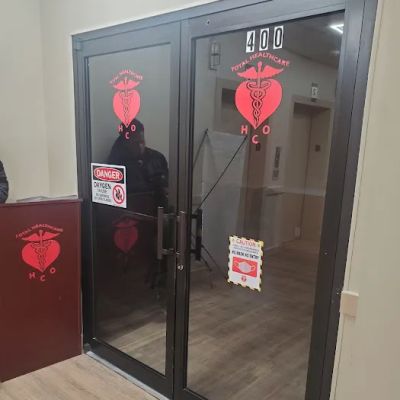Why Monitoring Your Blood Pressure Is Crucial for Heart Disease Prevention
Heart disease continues to be a major health threat, and high blood pressure (hypertension) is one of the leading risk factors for developing cardiovascular problems. In fact, nearly half of all American adults suffer from hypertension, yet many are unaware of the risks it poses. Monitoring your blood pressure regularly is one of the most effective ways to prevent heart disease and avoid its severe consequences. In this article, we will explore the relationship between blood pressure and heart disease, the importance of monitoring it, and how you can manage your blood pressure for a healthier life.

The Link Between High Blood Pressure and Heart Disease
Blood pressure refers to the force of blood pushing against the walls of your arteries as your heart pumps it throughout your body. When your blood pressure is consistently high, it can cause serious damage to your heart and arteries. High blood pressure, often called the "silent killer," can lead to conditions such as heart attacks, strokes, heart failure, and kidney disease, even without noticeable symptoms.
Atlanta Heart Specialists
atlanta heart specialists
4375 Johns Creek Pkwy #350, Suwanee, GA 30024, USA

1. How High Blood Pressure Damages the Heart
High blood pressure places extra strain on the heart and blood vessels. Over time, this strain can weaken the heart, leading to complications. Here are some key ways high blood pressure affects heart health:
- Increased Risk of Heart Attack: High blood pressure can lead to the buildup of plaque in the arteries, a condition known as atherosclerosis. This narrowing of the arteries reduces blood flow to the heart, increasing the risk of a heart attack.
- Heart Enlargement: The heart has to work harder to pump blood when blood pressure is high. Over time, this can cause the heart muscle to thicken or enlarge, a condition known as left ventricular hypertrophy, which can impair heart function.
- Increased Risk of Stroke: Uncontrolled high blood pressure is a major cause of strokes. It can cause damage to the blood vessels in the brain, making them more likely to rupture or become blocked.
- Heart Failure: Chronic high blood pressure can lead to heart failure, a condition in which the heart can no longer pump blood effectively to meet the body's needs.
2. Why High Blood Pressure Often Goes Undetected
One of the challenges with high blood pressure is that it often doesn’t show any immediate symptoms. This means people may have high blood pressure for years without knowing it, putting them at increased risk for heart disease. That's why regular monitoring is essential—especially for individuals with risk factors such as a family history of heart disease, obesity, a sedentary lifestyle, or a high-salt diet.
Why Regular Blood Pressure Monitoring Is Essential
Regular blood pressure monitoring is one of the most effective ways to keep track of your cardiovascular health. By regularly measuring your blood pressure, you can detect any abnormalities early and take action before more serious health issues arise. Here’s why monitoring is so important:
1. Early Detection of Hypertension
Monitoring your blood pressure regularly helps detect hypertension in its early stages, often before you experience symptoms. The earlier high blood pressure is detected, the sooner you can take steps to manage it, reducing your risk of heart disease and other complications.
2. Adjusting Lifestyle Habits to Control Blood Pressure
Knowing your blood pressure numbers allows you to make informed decisions about your lifestyle. For instance, if your blood pressure is higher than normal, you can take steps to lower it by adopting healthier habits such as:
- Eating a heart-healthy diet: Foods rich in potassium, fiber, and healthy fats, such as fruits, vegetables, and whole grains, can help reduce blood pressure.
- Exercising regularly: Physical activity strengthens the heart and helps maintain healthy blood pressure levels.
- Reducing alcohol intake: Excessive alcohol consumption can raise blood pressure, so it's important to limit your intake to moderate levels.
- Managing stress: Chronic stress can contribute to high blood pressure, so finding ways to relax and de-stress is crucial for heart health.
3. Monitoring Blood Pressure for Those on Medication
If you’ve been prescribed medication to control your blood pressure, regular monitoring is vital to ensure that the treatment is working. Sometimes, medications need to be adjusted over time to find the right dosage. By keeping track of your blood pressure readings, you can provide your healthcare provider with valuable information to make necessary changes to your treatment plan.
How to Monitor Your Blood Pressure at Home
One of the easiest ways to monitor your blood pressure is by using a home blood pressure monitor. These devices are affordable, easy to use, and provide you with accurate readings. Here's how you can use a home monitor effectively:
1. Choosing the Right Blood Pressure Monitor
There are many types of blood pressure monitors available, but automatic arm monitors are the most reliable. When selecting a monitor, choose one that is validated for accuracy. Ensure the cuff fits your arm correctly, as an improper cuff size can lead to inaccurate readings.
2. Taking Accurate Measurements
For accurate results, take your blood pressure at the same time each day, preferably in the morning before eating or drinking. Sit quietly for a few minutes before measuring, and make sure your arm is at heart level. Avoid talking or moving during the measurement.
3. Keeping a Blood Pressure Log
Track your readings over time and share the log with your healthcare provider. This will help them assess your blood pressure trends and make informed decisions about your treatment. Many home monitors come with apps or features to help you store and track your data more easily.
Real-Life Story: The Importance of Blood Pressure Monitoring
Meet John, a 55-year-old man who had been feeling fine for most of his life. He never thought much about his blood pressure and had never checked it regularly. However, after experiencing occasional dizziness and feeling fatigued, he decided to visit his doctor. To his surprise, his blood pressure was significantly high. He was immediately advised to start monitoring his blood pressure daily and make lifestyle changes. With regular monitoring, John was able to lower his blood pressure through diet and exercise, preventing more serious heart complications down the road.
Final Thoughts on Blood Pressure Monitoring and Heart Disease Prevention
Monitoring your blood pressure is one of the most important steps you can take to protect your heart health. With early detection and regular monitoring, you can manage your blood pressure and reduce your risk of heart disease. Whether you're at risk for high blood pressure or simply want to stay proactive about your health, keeping an eye on your blood pressure is essential for a long, healthy life.






















Deborah Heart and Lung Center
deborah heart and lung center
200 Trenton Rd, Browns Mills, NJ 08015, USA